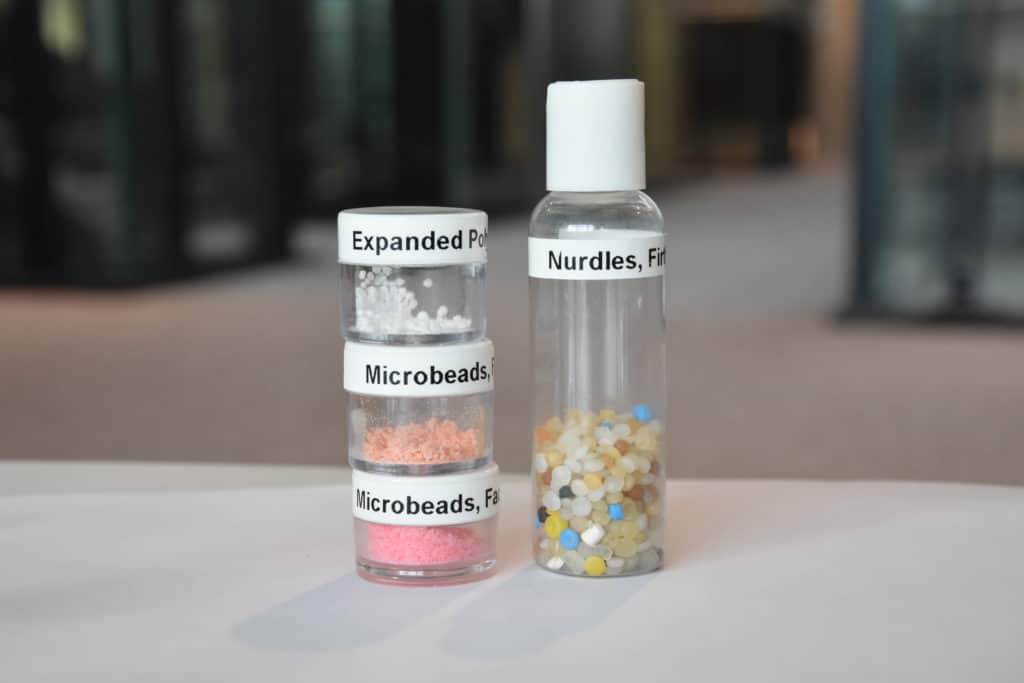The Good Scrub Guide and other simple ways to beat the microbead

Guest blog by Daniel Steadman of Fauna & Flora International.
Over the past three years, Fauna & Flora International (FFI) has been collecting data on microplastic use in personal care and cosmetic products and working effectively with UK brands on a voluntary phase out of microplastic ingredients in partnership with the Marine Conservation Society (MCS). This year, FFI has also partnered with Greenpeace UK on this issue and is now sharing our findings to help you choose a wide range of microplastic-free products.
Polluting plastic microbeads are used in a range of toiletries and cosmetics, for exfoliating and other purposes. However when these tiny pieces of plastic go down the drain, they end up in rivers and seas where they can harm wildlife.
It’s an issue that initially surprises many people, but often evokes a similar response – over 300,000 people have signed the petition to ban microbeads in the UK, launched by Greenpeace in partnership with Fauna & Flora International (FFI), the Marine Conservation Society (MCS) and Environmental Investigation Agency (EIA). In addition, over 90% of British people surveyed by Greenpeace also support a ban on these polluting plastic ingredients.
In addition to expressing support for a legal ban, you might be wondering what else you can do in the meantime. There are a number of simple ways you can further help to end this preventable and unnecessary source of marine plastic pollution:
-
Use FFI’s regularly updated Good Scrub Guide to find and choose microplastic-free face scrubs in no time.
-
Quick follow-up guides highlighting brands that produce plastic-free toothpastes, body scrubs and shaving products will also help you make your bathroom a microplastic-free zone.
-
When you’re on the go, download the free Beat the Microbead smartphone app to simply scan a product’s barcode to check whether it contains plastic microbeads.
-
To keep up to date with all the brands that have made public commitments to end microplastic ingredient use, follow @GoodScrub and @BeatTheBead on Twitter and pledge to Scrub it Out!
-
Concerned about products already on your bathroom shelf? Check whether they contain microplastics by looking for the following ingredients: polyethylene (PE), polypropylene (PP), polyethylene terephthalate (PET), polymethyl methacrylate (PMMA), polytetrafluoroethylene (PTFE), and nylon.
-
If you have already bought products containing microplastics, you can send them back to the manufacturer, asking them to end the use of these ingredients. Not sure what to write? Feel free to use this letter template.
-
Have a product you would like FFI to assess? Fill out this form and they will investigate further.
-
If you want to know more about the widespread use of plastic ingredients in cosmetics, we recommend UNEP’s latest report on the issue.
By voting with your wallet for microplastic-free products and making your choice known, you can prevent polluting microplastics from entering the sea through your sink. At the same time you’re influencing manufacturers, retailers and policy makers alike to take meaningful action to address this avoidable pollution.
If you have not done so already, make sure to also sign the petition calling on Prime Minister David Cameron to ban the use of microplastics in products that can go down the drain.
About Fiona Nicholls
Twitter: @fifinicholls Instagram: @fifinicholls35mm



